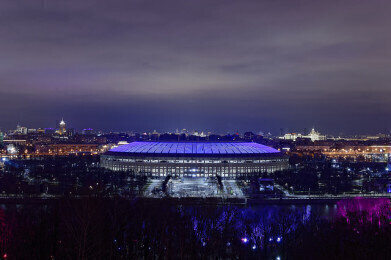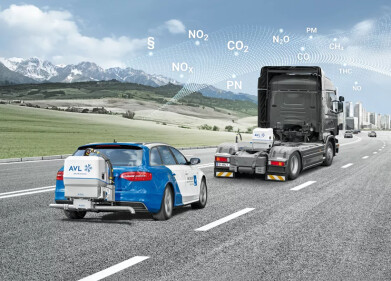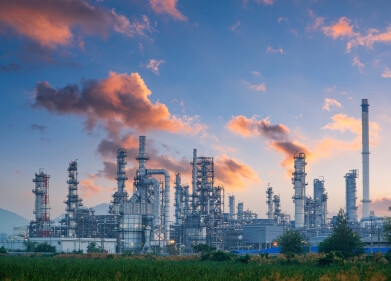Air Monitoring
What Is Air Pollution Like at the World Cup?
Jul 04 2018
Hundreds of thousands of football fans from all over the globe are visiting Russia this summer to partake in the incredible spectacle that is the FIFA World Cup. The most watched sports event in the world, the World Cup engenders an electrifying life atmosphere that simply has to be experienced to be believed.
Unfortunately, that atmosphere won’t be the only thing that visitors to Russia will be breathing in when they arrive in the country. Residents of the host cities are already well aware of the grave air pollution problems faced by Russia, although certain quarters have made attempts to improve the situation.
A sorry state of affairs
Global awareness of the dangers of poor air quality is on the increase – as was evidenced by the huge popularity of this year’s CEM conference in Budapest – and the Russian populace are no different.
Indeed, according to a recent report commissioned by Greenpeace Russia, the vast majority of Moscow residents (82%) were unhappy the level of air quality in the Russian capital. It was a similar story in other host cities, with 77% of St Petersburg and 60% of Kazan residents saying the same thing.
It’s also widely recognised that the combustion of polluting fossil fuels is largely to blame. Over 80% of respondents from Moscow, St Petersburg and Rostov-on-Don, which is the tenth most populous city in the country and the host of five matches during the World Cup, recognise that vehicle emissions are the main contributing factor to the air quality crisis.
The positive news
In order to find out what each city intended to do about the problem, Greenpeace Russia wrote to them and asked. The responses were something of a mixed bag. On the one hand, the following cities indicated they were addressing the problem:
- Moscow. Vehicles which do not meet Euro-3 Emissions Standards are banned from entering the city centre (a rule which has been in place for several years) and the construction of bicycle paths connecting neighbouring districts has been undertaken. Although the technology has not yet advanced far enough to allow us to charge electric cars on the go, Moscow has 78 charging stations across the city, with a further 79 to follow next year.
- St Petersburg. Electric trams and buses are to be introduced and polluting HGVs are banned from the city centre. 40km of cycle paths were built in 2017 and a bike rental scheme was released, while almost 40km more paths are planned for this year.
- Yekaterinburg. Authorities say they are looking into more sustainable forms of public transport, including electric buses and trams, as well as increasing cycle path coverage.
The negative news
On the other hand, not all Russian cities were so forthcoming about their plans to improve air quality. These included:
- Samara and Volvograd. Both cities acknowledged that air pollution was a serious issue, but did not have plans in place to address it at the current time.
- Sochi. The city administrators rejected Greenpeace’s proposals and said it would not be addressing air quality at all.
On the whole, there is some encouraging news regarding Russian attitudes to air quality, but it’s clear that much work must still be done. As for those currently enjoying the World Cup, it would be prudent advice to avoid the most polluted parts of the city as much as possible. But don’t let the contamination get in the way of celebration!
Digital Edition
IET 34.2 March 2024
April 2024
Gas Detection - Biogas batch fermentation system for laboratory use with automatic gas analysis in real time Water/Wastewater - Upcycling sensors for sustainable nature management - Prist...
View all digital editions
Events
Apr 30 2024 Melbourne, Australia
Apr 30 2024 Birmingham, UK
May 03 2024 Seoul, South Korea
May 05 2024 Seville, Spain
May 06 2024 Minneapolis, MN, USA


















